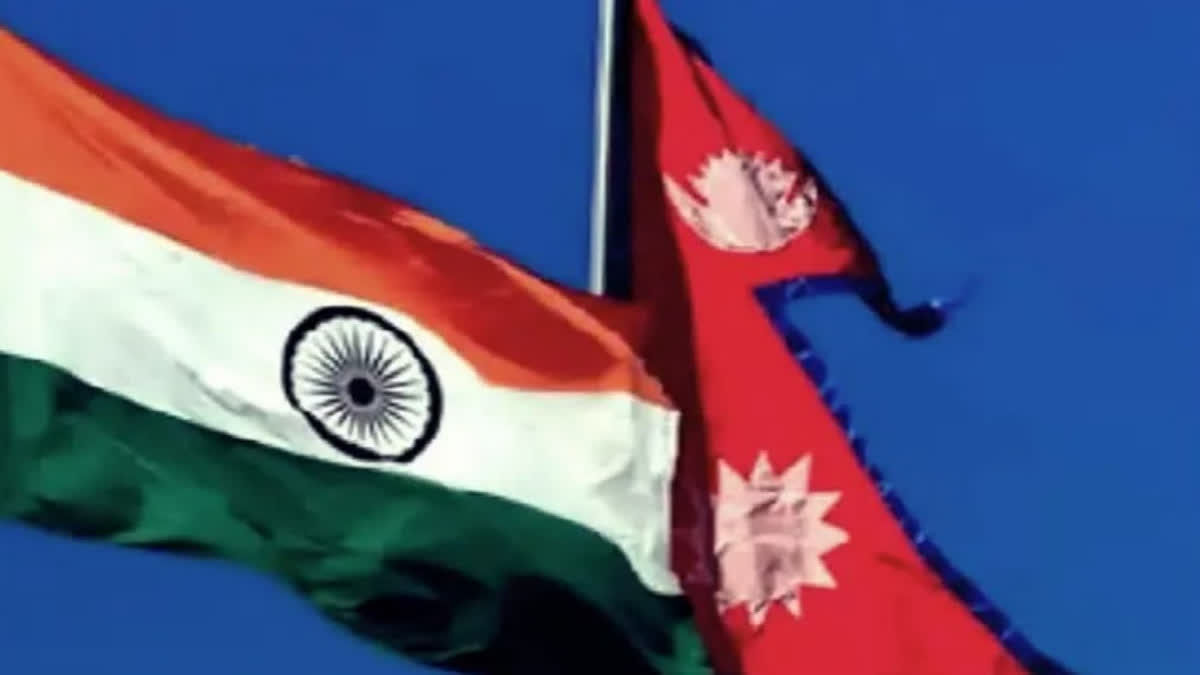New Delhi: The Armed Police Force (APF) of Nepal has agreed to further strengthen their information sharing system with Sashastra Seema Bal (SSB) after the latter expressed its concern over the porous Indo-Nepal border, which is being used by terrorist organisations and other forces, inimical to India’s security.
Sources said that SSB director general Rashmi Shukla took up the issue of border infiltration and smuggling with Raju Aryal, Inspector General of APF. “India has raised the issue of using the border by terrorist organisations to infiltrate into the country, an issue the APF delegation from Nepal has also expressed concern,” sources said.
It is worth mentioning that the 7th annual coordination meeting between the director general of SSB Rashmi Shukla and Inspector General of Armed Police Force (APF) Raju Aryal is currently taking place in New Delhi from November 6 to 8. The talks at the level of two heads of the forces serve as a crucial platform for both forces to engage in discussions on border-related matters. Led by their respective leaders, the SSB and APF delegations aim to strengthen the coordination between the two border guarding forces for more effective management of the open and unfenced Indo-Nepal Border.
“The focus of the meeting is collaborative work on the development of effective mechanisms to combat trans-border crimes and facilitate the prompt exchange of critical information between the forces,” sources said. The meeting between SSB and APF assumes special significance following the fact that Pakistan-based terrorist organisations have been trying to use the Indo-Nepal border to infiltrate terrorists.
The issue of human trafficking became worse with the open border between India and Nepal as estimates say that thousands of Nepalese became victims of human trafficking. With the primary destination being either Africa or the Gulf region, transportation via train or bus to India is an easy route. The local border crossed in Nepal is the Saunali border in the Maharajganj district of UP and the Bairgania, Raxaul, and Narkatiaganj border in Bihar, sources said.
Also read: India, Nepal exchange contract for construction of world-class Buddhist Centre in Lumbini
“Strict patrolling by the Border Security Force and the Army along the Line of Control (LoC) and the International Border in Jammu and Kashmir has forced militants to infiltrate into India through Nepal,” sources said. The militants are now using the Indo-Nepal border in Uttar Pradesh and Bihar to enter India and making their inroads for entering Jammu and Kashmir.
Earlier in September, Northern Army Commander Lieutenant General Upendra Divwedi said that terrorists were infiltrating through Nepal and Punjab routes to foment trouble and disrupt the peaceful atmosphere in Jammu & Kashmir. A Parliamentary Standing Committee on Home Affairs in its last meeting with the MHA official has also raised the issue of cross-border terrorism, illegal migration, smuggling of fake currency and trafficking of drugs and weapons.
The Ministry said that India shares an open border of over 1,850 km with Nepal and steps have been taken for better border management. Five Indian States namely Uttarakhand, Uttar Pradesh, Bihar, West Bengal and Sikkim share their border with Nepal. “Steps for better border management are continuously being taken through improved border infrastructure and enhanced security cooperation,” the Home Ministry said.
Asserting that regular meetings at the local level in the border districts and between the border guarding forces of both sides take place, the ministry said that both sides share information on contraband smuggling, drugs, fake Indian currency and activities on various groups and organisations.
However, it is worth mentioning that India’s bilateral relationship with Nepal has expanded to new initiatives in agriculture, inland waterways and power sector cooperation. The inland waterways connectivity between India and Nepal with four multi-model transportation routes, including Jharkhand, Bihar and Uttar Pradesh, was announced in 2019. Two of the terminals at Varanasi and Sahibganj have already been completed and work is underway for the remaining terminals.



